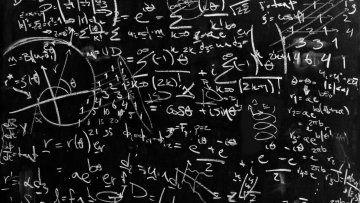14:15
Asymptotic behaviour for equidispersive solutions of the Boltzmann equation
Abstract
In this talk we consider particular solutions of the Boltzmann equation which have the form $f (x,v,t) = g (v − M (t)x,t)$ where $M (t) = A(I + tA)^{−1}$ with the matrix $A$ describing a shear flow or a dilatation or a combination of both. These solutions are known as equidispersive solutions. We will show that, for different choices for the matrix A and for different homogeneities of the collision kernel, we obtain different long time asymptotics for the corresponding equidispersive solutions. In particular we will focus on the case of simple shear flow and prove rigorously the existence of self-similar solutions with exponentially increasing internal energy.
Quasi-isometry Invariance of Group Splittings over Coarse Poincaré Duality Groups
Abstract
Stallings' theorem states that a finitely generated group splits over a finite subgroup if and only if it has more than one end. As a consequence of this, group splittings over finite subgroups are invariant under quasi-isometry. I will discuss a generalisation of Stallings' theorem which shows that under suitable hypotheses, group splittings over classes of infinite groups, namely coarse $PD_n$ groups, are also invariant under quasi-isometry.
What is it like to do mathematical research? Many undergraduates wonder this, as they consider whether they would like to pursue graduate studies. There is no better way for the department to answer the question than to give undergraduates the opportunity to work on their own mathematical research projects. This summer the Oxford Mathematics enabled around 50 students to carry out such projects, working with faculty and postdocs in the department.
Geometric Invariant Theory and its Variation
Abstract
A central tool in the construction of moduli spaces throughout algebraic geometry and beyond, geometric invariant theory (GIT) aims to sensibly answer the question, "How can we quotient an algebraic variety by a group action?" In this talk I will explain some basics of GIT and indicate how it can be used to build moduli spaces, before exploring one of its salient features: the non-canonicity of the quotient. I will show how the dependence on an additional parameter, a choice of so-called 'linearisation', leads to a rich 'wall crossing' picture, giving different interrelated models of the quotient. Time permitting, I will also speak about recent developments in non-reductive GIT, and joint work extending this dependence to the non-reductive setting.
Spectra
Abstract
Spectra provide a way of understanding cohomology theories in terms of homotopy theory. Spectra are a bit like CW-complexes, they have homotopy groups which may be used to characterize homotopy equivalences. However, a spectrum has homotopy groups in negative degrees, too, and they are abelian groups in all degrees. We will discuss spectra representing ordinary cohomology, bordism, and K-theory.


